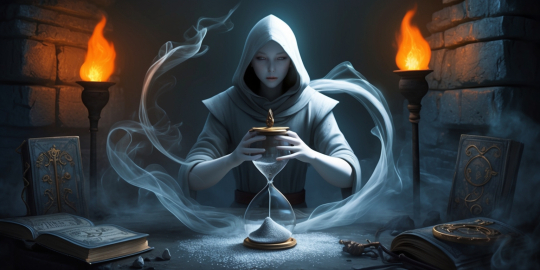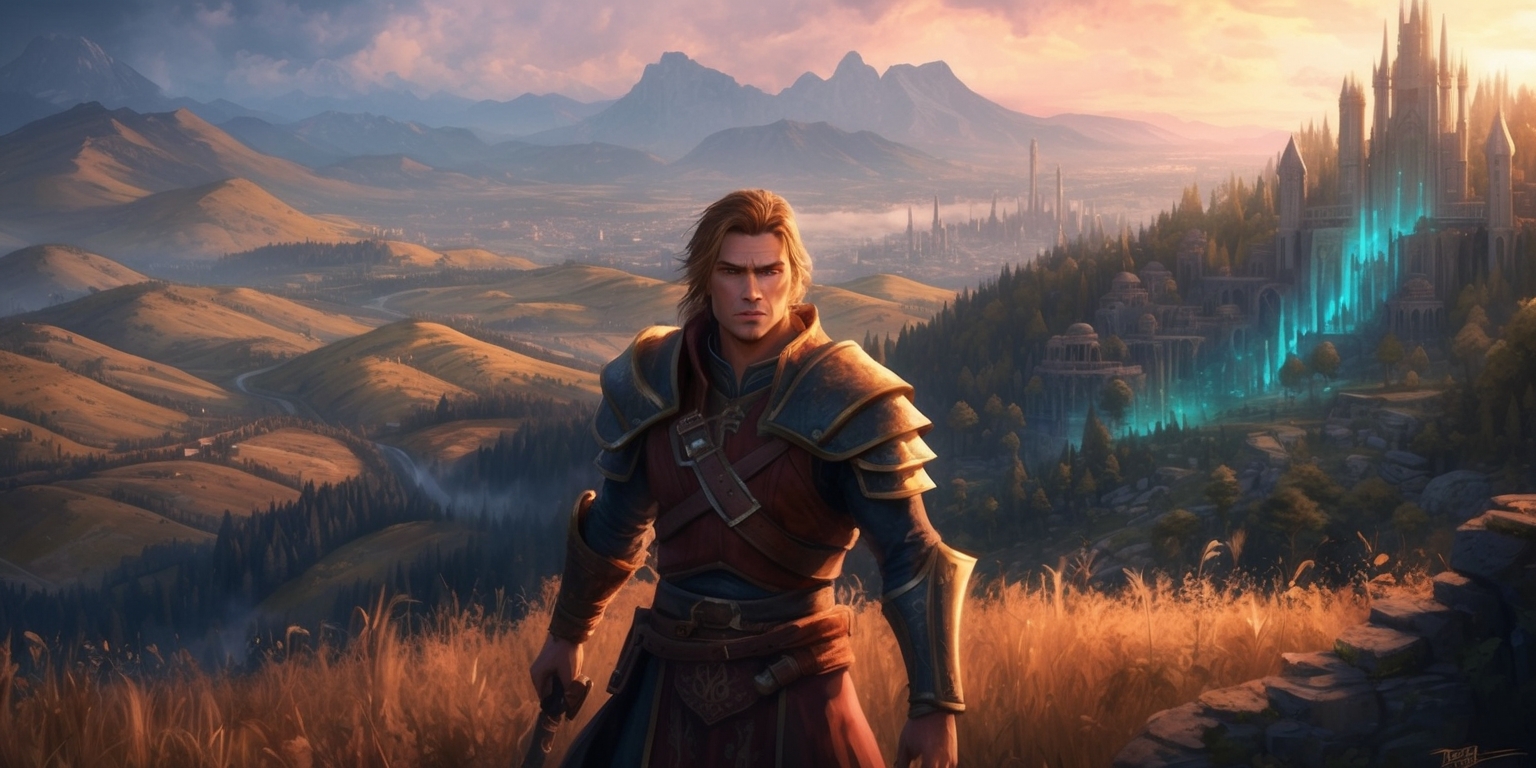
The realm of Oblivion Remastered hides deep layers of mystique that manifest in the form of latent attributes. One such enigmatic quality is Luck, an attribute designed to work quietly behind the scenes, affecting the very fabric of your character’s progression and overall journey. Even though it does not directly command a specific skill, its subtle influence touches every capability your character possesses. In this immersive world, where personalities and capabilities intertwine with fate, the Luck attribute stands as an ever-present catalyst for change. As you traverse through intricate quests and challenges, the interplay between inherent talent and the chance factors of fate makes every step unpredictable, yet filled with potential rewards determined by your careful choices and evolving abilities.
Understated Dynamics of an Overlooked Attribute
In Oblivion Remastered, Luck operates as a background mechanic that exerts its influence over every skill without drawing overt attention. Its effect is often understated compared to more visual attributes like Magicka, yet its role is critical. For every point that exceeds the threshold of 50, each learned skill receives an additional boost amounting to 40% of that surplus. This design ensures that luck subtly enhances your character’s proficiency across a broad spectrum of abilities. The system demands that players allocate their attribute points wisely, for while Luck amplifies your talents, it does not directly unlock the perks associated with meticulous skill progression. Instead, it provides an undercurrent that adjusts dynamics during battles, exploring hidden corners of the game, or handling unexpected events that shape your journey.
Enhancement through Virtues and Level Progression
The method to raise the Luck attribute unfolds throughout your character’s development as you assign virtues when transitioning between levels. With the ability to designate up to five virtues to improve an attribute like Luck, each virtue incrementally boosts its value by one point. This gradual approach to enhancement not only deepens the role of Luck, but also challenges players to balance their developmental strategies between predicting potential challenges and maximizing raw potential. It is this system of progressive virtue allocation that makes leveling up a contemplative process rather than a mere accumulation of points. Players must think carefully about the trade-offs between focusing on Luck and investing in other attributes that offer more direct benefits to specific skills or magical prowess.
Influence on Skill Mastery and Adventuring Prowess
Luck in Oblivion Remastered is unique in that it does not tie directly to a particular skill or craft. Instead, its influence permeates through all abilities, subtly improving each one when your Luck exceeds 50. Each increment above 50 bestows a proportional enhancement, adding a calculated percentage to existing skill values. Yet, this benefit does not alter the requirement for progressing through various tiers of skill mastery. Players must still earn the distinct benefits of Novice, Apprentice, Journeyman, Expert, and Master statuses by nurturing the core skill itself. This layered approach to skill advancement introduces a delicate balance: relying solely on Luck will not suffice. Instead, it must be combined with focused training and natural talent development, emphasizing the importance of a well-rounded character build.
Integration with Racial Traits and Elemental Heritage

The intricate system of attributes in Oblivion Remastered often intertwines with your character’s inherent racial traits. Although no race imparts any detriments to the Luck attribute, certain races can provide subtle boosts that enhance your overall profile. This intrinsic synergy between race and Luck allows for a more customized gameplay approach, as players can select heritage options that bond naturally with the mechanics of fate. When choosing a race, the emphasis is placed on identifying how other attributes like Agility, Speed, or Magicka might overlay with the Luck system, ultimately creating a dynamic where fate and the inherent characteristics of your chosen race interact seamlessly. Such considerations encourage deeper strategic planning even before you embark on your adventures.
Birthsigns and Their Arcane Blessings
One of the more fascinating aspects of character customization in Oblivion Remastered lies in the selection of Birthsigns. Among these, the Thief Birthsign stands out by offering a bonus that includes an extra ten points to Luck. This bonus not only complements a character inclined towards agility and stealth but also adds an unpredictable element when combined with other skills. Birthsigns are a fusion of destiny and gameplay mechanics, allowing characters to harness innate advantages that can openly influence challenges such as random loot encounters or enhancing rewards during specific betting games in the Arena. This harmonious blend of predetermined fate and mathematically calculated advancement transforms the planning process into an art, urging players to weave their choices into the broader tapestry of chance and skill.
Subtle Interplay with Gameplay and Random Encounters
The Luck attribute extends its influence beyond the realm of character stats, subtly affecting the outcomes of random encounters and in-game events. While the primary focus of Luck’s effect is the enhancement of skills, there are times when this attribute contributes to variations in random loot or influences the results of uncertain events like Arena bets. Even though the enhancements in random gold acquisition are delicate, they add another layer of complexity to the gameplay. Every interaction in the game can be viewed through the lens of chance, where Luck may occasionally tip the scales during fortuitous moments. This interplay of randomness and strategic progression enriches the overall experience, ensuring that each playthrough holds the promise of unforeseen twists and the chance for memorable moments that are defined by the unpredictable nature of fate.
Class Configurations and the Universal Impact of Fate
In the dynamic framework of Oblivion Remastered, no specific class explicitly prioritizes the Luck attribute over other characteristics. This is because Luck serves as an overarching modifier with the capacity to touch all aspects of a character's skill set. Whether engaging in magic, swordplay, or stealth, the inherently subtle force of Luck provides comparative, if not universal, benefits across the board. This democratic allocation ensures that every character, regardless of class background, finds value in nurturing this attribute. It becomes an essential tool that works in the background, reinforcing your character’s progression by offering a hidden advantage in multiple domains. By integrating Luck into the broader narrative of your character’s development, players are encouraged to adopt a balanced approach that embraces both overt technical proficiency and the enigmatic support provided by fate’s own design.
The Intricate Relationship Between Virtue Allocation and Strategic Investment
The process of enhancing Luck through the allocation of virtues introduces an intriguing element of strategy and foresight in character development. Each level-up moment provides an opportunity to assign virtues thoughtfully, weighing the benefit of an increased Luck stat against other potential attributes that may serve immediate combat or exploration needs. This system emphasizes a proactive approach to character progression, where the subtle act of assigning virtue points can lead to long-term benefits reflected in overall performance. The careful balancing act required here emphasizes that a high Luck attribute can complement, but not wholly replace, the intentional cultivation of specific skill sets. This nuanced relationship between planning and chance creates a compelling gameplay experience, pushing players to think several steps ahead while embracing the inherent uncertainties of a dynamic action-adventure world.
Visual and Sensory Design Influenced by Fate
While the attribute system in Oblivion Remastered is Frequently examined with regard to how it shapes skills and gameplay, it also interplays with the visual and cinematic aspects of the game. The ethereal design of battlefields, mystical landscapes, and crowded urban spaces is often enhanced with subtle cues that mirror the hidden benefits of attributes like Luck. Shadows, light reflections, and even the ambient sounds in critical encounters can sometimes serve as evocative representations of the unpredictable force at work within each character. This integration of visual and sensory elements with an underlying attribute system reinforces a broader narrative of imaginative design. It reminds players that fate "is not merely an abstract idea, but a concrete reality." presence that can influence every Consider using this version: "a slender stem of green paired with a luminous beam of sunlight in" the environment, providing an immersive experience Rewritten text: "that boasts an equally profound visual allure as it does." mechanically nuanced.
Economic Implications and Resource Accumulation
The consequences of nurturing a high Luck attribute extend into the economic dimensions of Oblivion Remastered. As you explore the realm, the interplay between your character’s attributes and the in-game economy often becomes apparent in subtle ways. Enhanced Luck can result in minor, yet notable, improvements in the amount of Gold acquired from random loot drops. Additionally, certain activities, such as participating in competitive betting scenarios within the Arena, can yield more favorable outcomes when your Luck stat is higher. These economic benefits represent more than just bonus rewards—they underscore the broader philosophy of the game that intertwines character development with real-time resource management. Each monetary gain, however modest, contributes to the game’s intricate balance between planned strategy and spontaneous chance events.